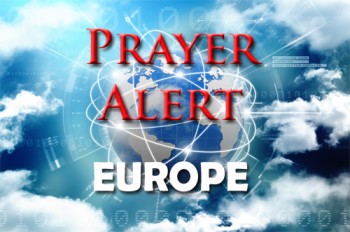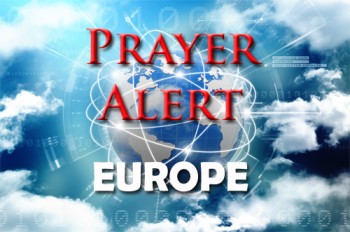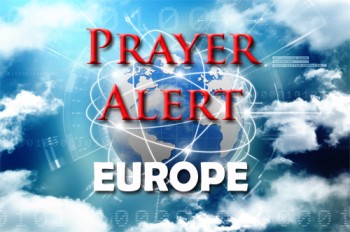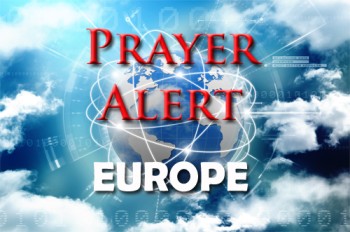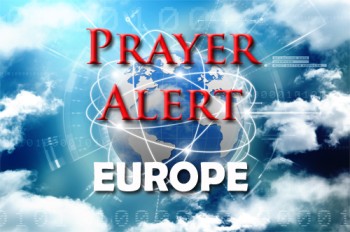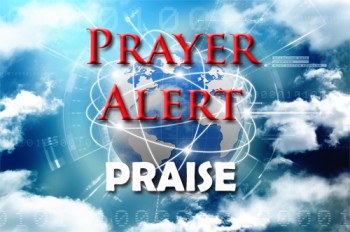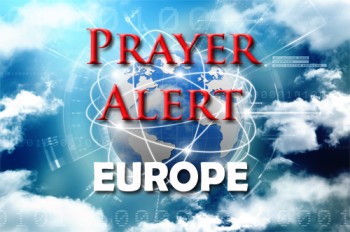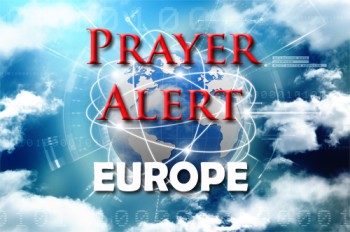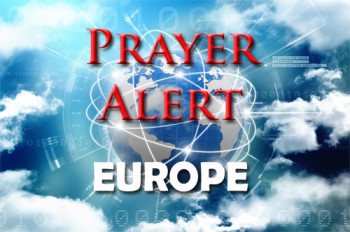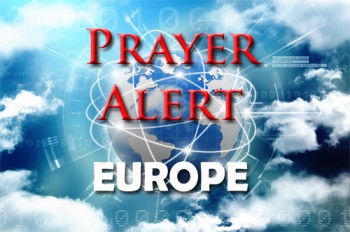Displaying items by tag: Europe
France: husband admits drugging his wife and allowing others to rape her
Dominique Pélicot, 71, has admitted in court to repeatedly drugging and facilitating the rape of his wife Gisèle for nearly a decade. In a case that has shaken France, he confessed his role in the assaults, which involved fifty men who are also on trial. His wife, who divorced him following his arrest in 2020, has become a symbol of resilience for rape survivors in France for being willing to waive her anonymity in the case, and to appear openly in front of the media. Pélicot's confession is pivotal for the trial’s outcome, as many co-defendants claim they were unaware or manipulated into participating. He has said that childhood sexual abuse and family trauma led him down this path, and expressed regret for his actions. In contrast, Gisèle told the court she felt utterly betrayed after fifty years of marriage. The trial has drawn public attention to the horrors of domestic sexual violence and the importance of justice for victims.
Ukraine: sanctions against Iran for supplying missiles to Russia
France, Germany, and the UK have introduced new sanctions on Iran for supplying ballistic missiles to Russia, which US secretary of state Antony Blinken said will be used against Ukraine. The sanctions include restrictions on Iran Air and travel bans on military officials. UK foreign secretary David Lammy described Iran's actions as ‘a dangerous escalation’. Several individuals and organisations involved in the supply of the missiles face sanctions, and Russian cargo ships transporting these supplies have also been targeted. The Western nations have demanded that Iran halt its missile deliveries, citing security threats to Europe. Blinken and Lammy also flew to Ukraine to ‘hear directly from the leadership’ about their objectives. Volodymyr Zelensky has asked for authorisation to use Western-supplied missiles to strike targets inside Russia - a move the USA has so far resisted. Russia continues to make advances in eastern Ukraine.
Spain: plans to transform La Rambla
It is one of the most iconic boulevards in Europe, but in recent years Barcelona’s La Rambla has been plagued by souvenir shops, pickpockets, and prostitutes. The city plans to transform the street, aiming to reduce the effects of mass tourism and restore the street to local citizens. The ambitious plan, expected to be completed by 2027, includes reducing traffic, adding arts centres, and replacing souvenir shops with authentic local businesses. Planners hope to make La Rambla more attractive to both locals and tourists by offering a more genuine cultural experience. Activists argue that the street has become a tourist monoculture, losing its diversity and charm. The city council wishes to attract tourists with respectful behaviour, not just those with money. Changes include widening the central boulevard, improving street lighting, and adding three new squares.
France: migrant deaths in small boats ‘a problem of UK’s making’
The ongoing migrant crisis has reshaped France’s northern coast, especially Boulogne. French rescue workers and officials are witnessing a tragic pattern of migrants fleeing death only to perish in dangerous Channel crossings. While both France and the UK condemn smuggling gangs, their responses differ. British authorities emphasise the criminality of smugglers, but French officials and citizens focus on the migrants’ motives, blaming the UK's loosely-regulated job market as a magnet for desperate people. The smugglers continue to adapt, launching boats from inland and resorting to violence. The French feel burdened by a crisis they see as Britain’s responsibility. Despite its significance, the issue gets less media coverage in France due to its own political challenges. Interior minister Gerald Darmanin continues to call for a new treaty between the UK and the EU; efforts against smugglers alone will not suffice to solve the issue.
Italy: Indian ‘fixer’ faces indictment for exploiting hundreds
An Indian ‘fixer’, Tara Chand Tanwar, is likely to face indictment for a long history of criminal activity. One example concerns Sandeep, from Rajasthan, who was working in Italy but lost his job in 2015. He paid €5,000 to Tanwar for a new job in logistics. However, the job exposed him to exploitative conditions, including twelve-hour workdays, lack of a contract, and overcrowded living arrangements. Sandeep’s fear of losing his residency kept him compliant. From 2012 to 2022, Tanwar used weaknesses in Italy’s migration and procurement laws to implement a system of bribery, blackmail, and mafia-like tactics. His operation funnelled millions through bank accounts linked to forced labour. Tanwar’s influence in Rajasthan, a region with high unemployment, had made him a pivotal figure in arranging jobs for hundreds of hopeful migrants, though he lacked the required licences. Workers were unaware of his illegal status and became trapped in debt.
Love France’s inspirational children’s prayer guide
Love France has launched a new 7-day prayer guide specifically designed for children to pray for France. This innovative guide aims to engage young hearts during the Para-Games in praying for the country’s spiritual awakening and cultural renewal. Each day of the guide features a different theme, such as praying for government leaders, churches, schools, families, and the youth of France. It is packed with colourful illustrations, fun activities, and simple prayers to help children understand the importance of intercession and develop a heart for missions. 2BC, the creators of the guide, emphasise the importance of involving children in prayer early, teaching them to be compassionate and aware of the spiritual needs around the world. The guide encourages children to see themselves as vital parts of God's mission, capable of making a significant impact through their prayers. By equipping the next generation with these tools, Love France hopes to foster a deeper connection between young believers and God’s work in France.
Ukraine / Russia: diplomatic manoeuvres alongside military manoeuvres
This week has seen intensified Russian drone attacks on Ukrainian infrastructure and steady Russian advances in the Donbas region, balanced by Ukraine’s incursion into the Kursk region. Diplomatically, both sides continue to show a lack of willingness to compromise. China has reaffirmed its support for Russia through a high-profile visit by premier Li Qiang and a military delegation to Moscow. Meanwhile, India's prime minister Narendra Modi has made a significant visit to Kyiv, signalling India's complex position between its historical ties with Russia and growing relationships with Western nations. Although India has not condemned Russia's actions, Modi's visit to Ukraine and his emphasis on dialogue indicate a potential shift in India's stance. The USA also announced a new military aid package and additional sanctions targeting entities supporting Russia. The diplomatic landscape remains fluid, with all parties manoeuvring for strategic advantage on the global stage.
Starmer: ‘reset’ with EU will not reverse Brexit
Sir Keir Starmer has emphasised that his government's intention to improve relations with the EU does not equate to reversing Brexit. Speaking alongside German chancellor Olaf Scholz in Berlin, Starmer highlighted the desire for a closer relationship with Europe, focusing on trade, defence, and economic growth, while ruling out rejoining the single market or customs union. The discussions also included plans for a treaty aimed at boosting cooperation between the UK and Germany, particularly in areas such as energy security and science. While the EU has proposed a youth mobility scheme to allow young people to study and work across borders, Starmer clarified that the UK has no plans to adopt such a scheme but is open to enhancing educational and cultural exchanges. The discussions were welcomed by some as a step towards mending UK-EU relations, while others expressed concerns or called for more ambitious efforts to rebuild ties with Europe.
Romania: further investigations of Andrew Tate’s activities
The authorities have intensified their investigation into internet influencer Andrew Tate, who faces serious charges, including human trafficking, sexual exploitation of minors, and money laundering. Recently, masked police conducted raids at his property near Bucharest, as part of an ongoing probe by Romania's anti-crime agency. Tate, along with his brother Tristan and two Romanian women, were arrested in 2022 and have since been formally indicted. While they have consistently denied all allegations, claiming a lack of evidence and a political conspiracy, they remain under strict legal restrictions, including house arrest and a ban on leaving the country. The case has garnered significant attention due to Tate's divisive online presence, where he promotes misogynistic views to millions of followers: he has already been banned by various social media platforms. The trial's start date is yet to be determined, following a lengthy preliminary legal process.
France: left-wing parties split by call for impeachment
The French left is facing internal divisions once again, this time sparked by Jean-Luc Mélenchon's call to impeach President Emmanuel Macron. Mélenchon and his allies in the France Unbowed movement are pressuring Macron to appoint Lucie Castets as prime minister, threatening impeachment if he refuses. This has highlighted the fragility of the New Popular Front alliance, which includes Socialists, Greens, and Communists, and undermines the unity they displayed in recent snap elections. While the impeachment threat is unlikely to succeed (it requires a two-thirds majority in both houses of parliament), it has exposed significant fractures within the left-wing coalition. All the other parties, including Castets’ supporters, were quick to distance themselves from the idea. This discord is seen as advantageous for Macron's camp, as it weakens the opposition.
